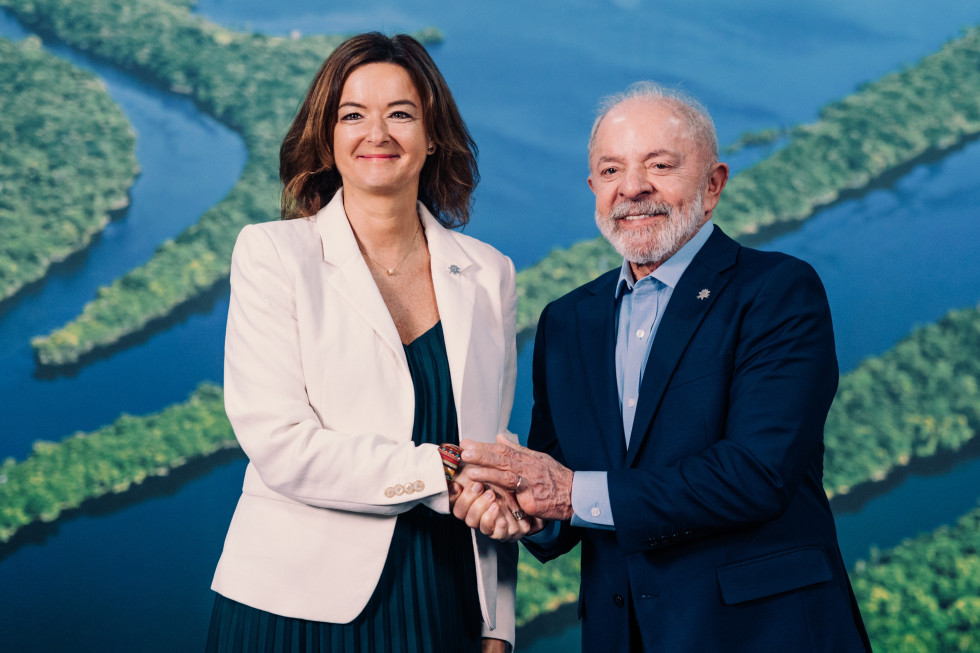Fajon: Slovenia proves that small countries can drive big change on climate

Minister Tanja Fajon with Brazilian President Luiz Inácio Lula da Silva | Author MZEZ
At COP30, the world marks 20 years since the Kyoto Protocol entered into force and 10 years since the adoption of the Paris Agreement. The conference is taking place in the "capital" of the Amazon, also known as the lungs of the world, where climate change is starkly visible and part of everyday life for the local population.
"We find ourselves at a crossroads today. COP30 is not just another checkpoint; it is a credibility test for the Paris Agreement. The next generation nationally determined contributions (NDCs) will decide the pace of decarbonisation through the 2030s and the future of our planet. Our task here is straightforward: turn the Global Stocktake into action and keep 1.5°C within reach. The European Union has submitted a new NDC that aligns with this goal and reflects our shared commitment to accelerating emissions reductions and strengthening resilience. In doing so, the EU continues to lead by example on the path to climate neutrality," Minister Fajon emphasised in her address.
She went on to highlight Slovenia’s efforts at the global, national and local levels. Globally, she underscored the importance of the climate, peace and security nexus, which Slovenia has placed firmly on the agenda of the Security Council as a non-permanent member. She also stressed the role of water security in climate change adaptation and of climate diplomacy, which must be grounded in gender equality and a human rights-based approach. "At the national level, Slovenia brings coherent policies at home and demonstrates that even small countries can drive big change. The Climate Law, adopted this July, sets a legally binding commitment to climate neutrality by 2045 at the latest,” explained Fajon.
She also touched on the action at the local level, mentioning the establishment of the Climate Office, which supports local communities and regions in adapting to climate change and helps the state understand local needs and conditions.
"We are still hearing voices of climate change scepticism. However, scientists – as well as the current increase in frequency and intensity of extreme weather events – are telling us a different story: climate change is real; it is already happening; and it is aggravating existing vulnerabilities and increasing inequalities," stressed the minister.
She concluded by stressing that the world will only achieve its climate goals if each of us acts and contributes: "Even in uncertain times, multilateralism can still prove its worth – and we must choose to use it now. Climate cooperation has no alternative. In the long run, it is the only way to enhance resilience and bring stability for all."
As host and chair of COP30, Brazil is giving special attention to the preservation of tropical forests. On the day before the start of the COP30 Leaders' Summit, Minister Fajon visited a Slovenia-funded project in the Amazon rainforest. Slovenian beehives set up in the tropical forest help to preserve biodiversity, involve indigenous peoples – particularly women and girls – and promote innovative farming practices. During her visit to the project, which is being implemented by the Slovenian Embassy in Brazil in cooperation with the Peabiru Institute, Minister Fajon welcomed the positive impact of Slovenia's rich beekeeping tradition – even on the other side of the world.
Tomorrow, the second day of the COP30 Leaders' Summit, will feature a series of thematic panels. Minister Fajon will participate in the panel on the energy transition, where she will present Slovenia's efforts towards a clean, fair and competitive energy transition.

